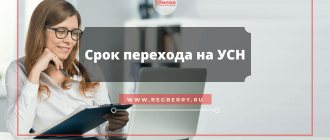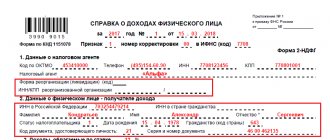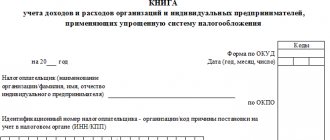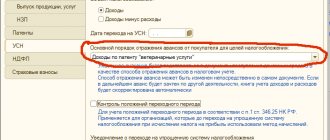What is the income tax in Russia and who should pay it?
Personal income tax is a direct tax, which is calculated from the difference between all income received by individuals and expenses that are confirmed by documents drawn up in accordance with current legislation, or tax deductions.
Read about the objects falling under this tax in the articles in the personal income tax section:
- "Object of taxation";
- “Income not subject to personal income tax.”
Personal income tax payers are individuals who, for tax calculation purposes, are divided into two groups:
- Residents of the Russian Federation are those who receive income and are in Russia for at least 183 calendar days during the year without interruption. They pay a tax of 13% of their salary (the amount of personal income tax on other income will be discussed below).
ATTENTION! From January 1, 2021, a progressive personal income tax rate was introduced. With income over 5 million rubles. per year, the tax should be calculated based on 15%.
- Non-residents of the Russian Federation are those who stay in the Russian Federation for less than 183 days and receive income on its territory. The income tax on their income is generally 30%. However, for some types of non-residents the personal income tax rate is 13%. Non-residents whose income from their main work activities are taxed at a rate of 13% include (clause 3, article 224 of the Tax Code of the Russian Federation):
- workers from EAEU countries (see important nuance here);
- working under a patent;
- highly qualified specialists;
- foreigners who are refugees or have received asylum in Russia;
- participants in the State Program to Assist Voluntary Resettlement in the Russian Federation;
- crew members of ships flying the State Flag of the Russian Federation.
K+ experts have prepared background information on personal income tax rates depending on residence, and also collected letters from the Ministry of Finance and the Federal Tax Service explaining the application of personal income tax rates in different situations. Get free trial access to the system.
Which tax system to choose for production
For most micro and small enterprises, the optimal choice is the simplified tax system of 15% (“Income minus expenses”), because There are usually significant costs for materials, raw materials, tools, labor and services.
STS 6% (“Income”) is preferable if expenses are difficult or impossible to document, which means they cannot be taken into account when calculating the taxable base. For example, an organization accepts scrap ferrous metals and produces products from it. There are two people on staff, registered for the minimum wage; scrap is brought to them without any documents, payment for it is made unofficially, and the cost of the finished products is high. It turns out that the revenue is large, but the expenses are insignificant, so paying 15% of the difference is unprofitable. In addition, you will have to take into account and document costs, which takes time. For such productions, the simplified tax system of 6% is suitable.
OSNO is chosen by large manufacturers, as well as small enterprises that, for some reason, do not have the right to use the “simplified tax” or sell finished products primarily to VAT payers.
Let's summarize:
- If you plan to officially purchase raw materials, materials, tools, pay for work and services, choose the simplified tax system of 15%. The simplified taxation system “Income minus expenses” is optimal for production, because Instead of three taxes (VAT, income tax and property tax), you need to pay one. But keep in mind that the use of this system is associated with the need to collect and record expense documents.
- If the share of documented expenses is minimal or there are none at all, a simplified tax system of 6% is suitable.
- If the majority of buyers are VAT payers or you cannot use the simplified tax system, stay on OSNO.
Do you have doubts about the choice of taxation system?
We will help you choose the best option taking into account the specifics of your business, draw up documents in accordance with tax requirements and submit them without your presence. The result is guaranteed! Take the first step towards your own business!
What percentage of salary and other income is income tax?
How much income tax will be in the end depends on the rate at which an individual’s income is taxed. Art. 224 of the Tax Code of the Russian Federation provides for 5 interest rates for personal income tax:
- 9% on the amount of income in the form of interest on mortgage-backed bonds issued before 01/01/2007. The same rate is established on the amounts of income of the founders of trust management of mortgage coverage received on the basis of the acquisition of mortgage participation certificates issued before 01/01/2007.
- 13% personal income tax on the amount of income of individuals (salaries, remunerations under civil contracts, income from the sale of property, etc.). Since 2015, the same rate applies to dividends. The tax base for dividends must be calculated by separating it from other income, which is taxed at a rate of 13%.
- 15% of the amount of dividends received by non-resident individuals from equity participation in Russian organizations. From 01/01/2021 - from annual income exceeding 5 million rubles.
- 30% on the amounts of all other income received by non-resident individuals.
- 35% from the amounts of winnings, prizes and participation in any competitions, amounts of interest on deposits in banks (in terms of exceeding the established rates of the Central Bank of the Russian Federation), amounts of savings on interest from loans received, etc.
Currently, there are special rules regarding the payment of advance tax payments from foreigners who operate on the basis of a patent tax system. When receiving or renewing a patent, they must make an advance payment based on the amount of 1,200 rubles, multiplied by the deflator coefficient established for the corresponding year, and by a coefficient taking into account the characteristics of the regional labor market. When subsequently calculating personal income tax for such an employee, the advance payments paid by him must be taken into account.
How to reduce 13%: personal income tax deduction
Individuals who are residents of the Russian Federation have the opportunity to use tax deductions to reduce income subject to personal income tax. The most widely used of them are deductions provided to citizens for children until they reach a certain age from income up to a certain amount.
There are also tax deductions with which you can return previously paid 13% personal income tax when purchasing property, paying for education, treatment, investing, etc. (Articles 218–221 of the Tax Code of the Russian Federation).
To return previously paid 13 percent of personal income tax from the budget, you must provide the Federal Tax Service with a declaration in form 3-NDFL and documents justifying the receipt of a tax deduction. Some types of deductions can be obtained from your employer.
Read about the existing types of deductions in our section “Deductions (NDFL)”.
Has the amount of personal income tax changed in 2022 - 2022?
There are no changes in the personal income tax amount in 2022. The personal income tax percentage and, accordingly, the amount of this tax have changed since 01/01/2021.
Thus, from January 2022, an increased tax rate of 15% is in force on the income of citizens whose income exceeds 5 million rubles. in year.
These innovations are important not only for individual taxpayers, but also for accountants who have to calculate taxes taking into account the new progressive scale. Therefore, we recommend you an analytical Review from ConsultantPlus experts, which comments on the upcoming changes. Trial access to the legal system is free.
Certain tax changes occurred in prior periods.
Thus, the changes in 2022 affected the fee for an independent assessment of an employee’s qualifications:
- it does not fall under the personal income tax withheld from the employee if it is paid by the employer (clause 21.1 of article 217 of the Tax Code of the Russian Federation);
- a social deduction can be claimed for its amount if it was paid by the employee himself (subclause 6, clause 1, article 219 of the Tax Code of the Russian Federation).
In 2022, changes were adopted to paragraph 60 of Art. 217 of the Tax Code of the Russian Federation, which allows not to tax, subject to certain conditions, income received by an individual during the liquidation of a foreign company (Law No. 34-FZ dated February 19, 2018). These changes apply to legal relations arising from 01/01/2016.
Small Business Taxes in 2022
The Government of the Russian Federation has adopted a number of legislative acts that came into force on January 1, 2022. They will affect the tax burden of the business.
Cancellation of UTII
Federal Law of June 29, 2012 No. 97-FZ
From January 1, 2022, the single tax on imputed income ceased to apply. Individual entrepreneurs who previously used imputation could switch to another special regime or to a general taxation regime. For those who applied UTII in the last quarter of 2022 and want to switch to the simplified tax system, the transition period has been extended. The application can be submitted until March 31, 2022.
Personal income tax 15%
Federal Law of November 23, 2022 No. 372-FZ
A progressive personal income tax scale is being introduced. Those whose income exceeds 5 million rubles per year will pay personal income tax at a rate of 15%. For those whose income is below this amount, the rate remains 13%.
Increased minimum wage and insurance premiums
Federal Law of December 29, 2022 No. 473-FZ
From January 1, 2022, the federal and regional minimum wage is 12,792 rubles. Employee salaries must be increased in accordance with the new amount, which means the tax burden on the employer will increase.
Also, since the beginning of the year, the maximum base for calculating insurance premiums has increased:
- to the Pension Fund of the Russian Federation - 1,465,000 rubles - from the excess amount you must pay contributions at a rate of 10%;
- to the Social Insurance Fund - 966,000 rubles - no contributions are paid from the excess amount.
There is no limit for calculating contributions for compulsory health insurance.
Increased limits for simplified tax system
Federal Law of July 31, 2022 No. 266-FZ
Standard restrictions on the use of simplified taxation are income up to 150 million rubles and up to 100 employees on staff. The tax rate may differ in regions, but its average is:
- for income - from 4 to 6%;
- for income minus expenses - from 7 to 15%.
If a simplified taxpayer goes beyond these limits, he is transferred to OSNO.
But from 2022, a transition period will be introduced for simplifiers with new restrictions:
- income - up to 200 million rubles;
- number of employees - up to 130.
The tax office will send “violators” to the transition regime automatically. The rates are the same for all regions:
- 8% - for income;
- 20% - for income minus expenses.
The new rates are valid for the entire quarter in which the excess occurred.
Contributions of individual entrepreneurs “for oneself”
The amounts of insurance premiums that individual entrepreneurs pay “for themselves” have not changed. In 2022 they are:
- for OPS - 32,448 rubles;
- for compulsory medical insurance - 8426 rubles;
- additional contribution to the Pension Fund - 1% of the amount exceeding 300,000 rubles of annual income.
Increase in excise taxes
Federal Law of October 15, 2022 No. 321-FZ
Excise tax rates on cigarettes, tobacco products and electronic cigarettes increased by 20% compared to 2022. The excise tax rate on cigarettes and cigarettes in 2022 is 2,359 rubles per 1 thousand pieces, on vapes and electronic cigarettes - 60 rubles per piece.
Also, we should not forget about the annual indexation of excise tax rates on other products. The plan for increasing rates until 2023 is contained in Article 193 of the Tax Code of the Russian Federation.
Tax holidays
Federal Law of July 31, 2022 No. 266-FZ
Tax holidays for individual entrepreneurs using the simplified tax system and special tax system have been extended until the end of 2021. Entrepreneurs can count on a zero tax rate if the following conditions are met:
- in the region of registration of individual entrepreneurs, a corresponding law has been adopted;
- The individual entrepreneur was registered for the first time after the law on tax holidays was adopted in the region.
- Individual entrepreneur works in the production, scientific, social sphere, provides personal services to the population or rents out housing;
- income from this activity constitutes at least 70% of the total income of the individual entrepreneur.
News for PSN
Federal Law of November 23, 2022 No. 373-FZ
In addition to tax holidays, new benefits have been introduced for individual entrepreneurs on PSN.
The list of activities for which PSN can be used has been expanded. It now includes teachers, photographers, chefs and farmers. The latter will be able to obtain a single patent for livestock and crop production.
Individual entrepreneurs using PSN will be able to reduce the cost of the patent by the amount of insurance premiums. If the entrepreneur does not have employees, then the entire amount of contributions can be deducted from the cost, and if there are employees, only half.
The area of the trading floor has also been increased to 150 m², at which it is possible to use PSN in the field of trade and catering.
Cancellation of land and transport tax declaration
Federal Law of April 15, 2022 No. 63-FZ
Starting from the 2022 tax period, taxpayers will no longer submit land and transport tax returns. Now the Federal Tax Service itself calculates the amount of taxes and sends receipts. These taxes must be paid by March 1, 2022.
Exemption from audit
Federal Law of December 29, 2022 No. 476-FZ
Starting from 2022, small businesses that meet the following conditions are exempt from mandatory audits:
- income for the previous year does not exceed 800 million rubles;
- the amount of assets on the balance sheet as of the end of last year does not exceed 400 million rubles.
Also, NPOs that meet at least one of the following conditions will not be checked:
- income from business activities for the past year up to 800 million, assets up to 400 million;
- is a fund in which the receipt of property (including money) for the previous year does not exceed 3 million rubles;
- is a consumer cooperation organization.
From January 1, 2022, these taxpayers can use simplified accounting methods and prepare simplified accounting reports starting with reporting for 2022.
Benefits for the IT sector
Federal Law of July 31, 2022 No. 265-FZ
Taxes and insurance premiums have been reduced for software developers. Income tax applies only to OSNO taxpayers. Its rate is now 3% instead of 20% as before.
Reduced insurance premiums apply to taxpayers under any taxation system. The general rate was reduced from 14 to 7.6%, and for certain types of contributions the interest was distributed as follows:
- pension insurance - up to 6%;
- social insurance for maternity or illness, including foreign citizens - up to 1.5%;
- medical insurance - up to 0.1%.
Companies that are included in the register of accredited organizations in the IT field have the right to benefits on taxes and insurance premiums. In addition, the staff must have at least 7 people.
The rules for applying the VAT exemption for sales have also changed. Now, in order to take advantage of the benefit, developers need to include their software in the register of Russian computer programs.
Results
Tax rates for personal income tax in 2022 have not changed. The latest change that has taken place is a progressive tax rate on income over 5 million rubles. in the amount of 15% from 2022. The previous change in personal income tax rates was in 2015, when the rate for dividend income was increased from 9 to 13%.
Despite the relative constancy of personal income tax rates, changes are regularly made to the legislation regarding the procedure for calculating tax, or new tax reporting forms are introduced and the rules for filling them out are changed.
Sources: Tax Code of the Russian Federation
You can find more complete information on the topic in ConsultantPlus. Free trial access to the system for 2 days.
Change in tax rate in 2016
This year the Ministry of Finance does not plan to change the tax rate. According to the current legislation of the Russian Federation and Art. No. 248 of the Tax Code of the Russian Federation, the percentage rate for LLC profit tax is 20%.
Each commercial organization, legal entity and individual entrepreneurs engaged in small and medium-sized businesses throughout the Russian Federation act as taxpayers. Their responsibilities include timely and full payment of taxes to the state budget and federal funds within the period established by the clauses of the current Tax Code.
The organization must clearly understand what percentage the income tax is on the income received. The payment regulations and determination of the rate are specified in detail in the Tax Code of the Republic of Belarus.




